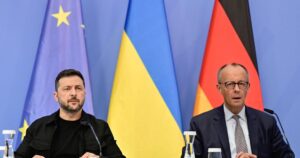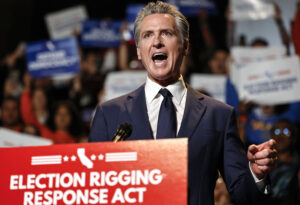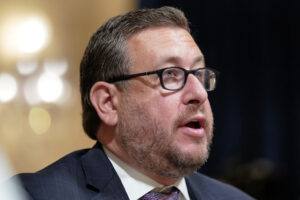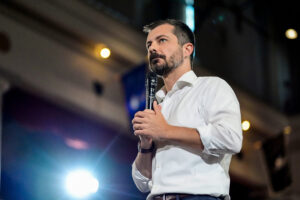The Dictatorship
The Supreme Court’s next Second Amendment case could be a drug case
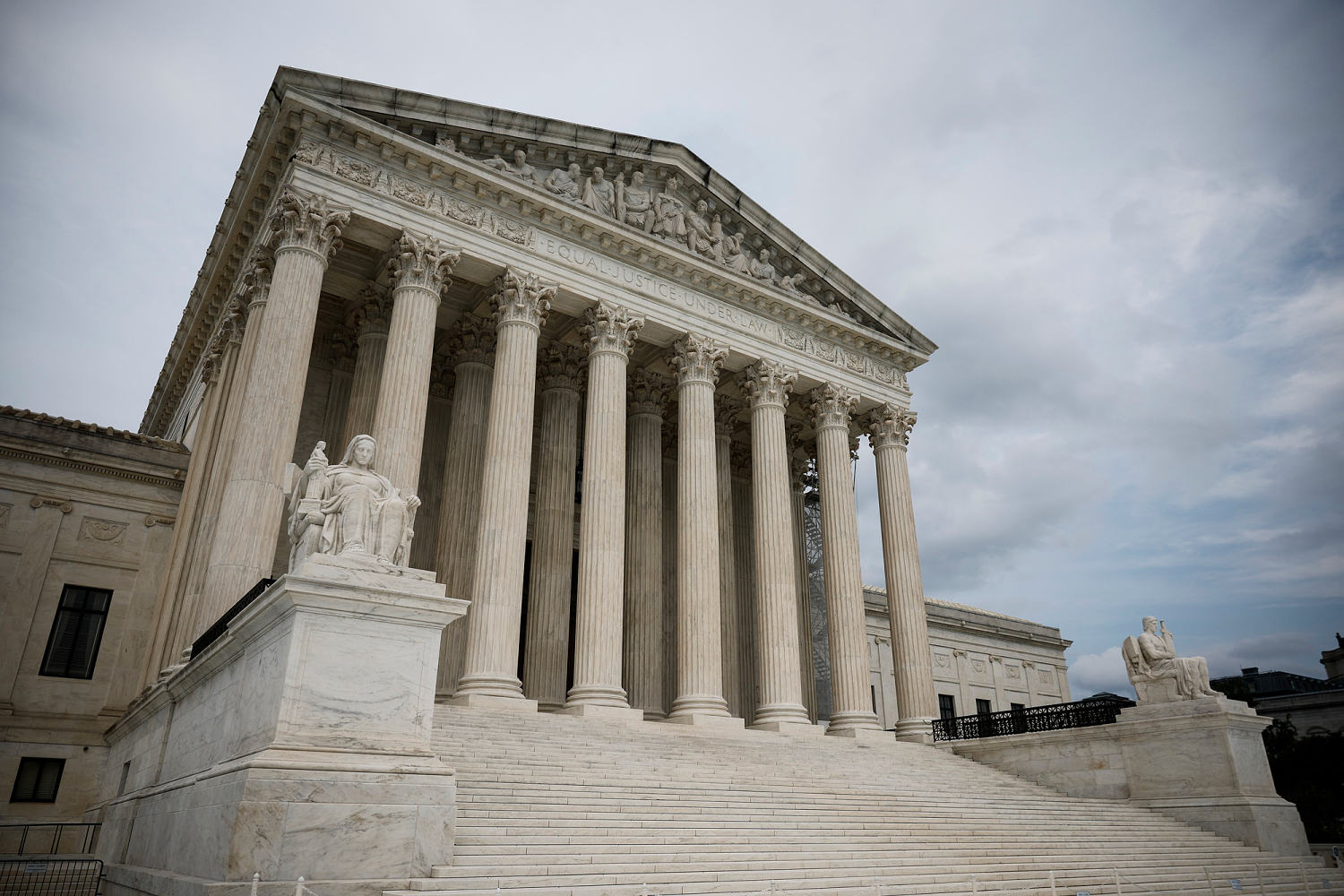
The Supreme Court’s upcoming term is already stocked with important cases on several hot-button issues, such as voting rights, campaign finance, transgender sports participation and more. The justices add cases to their docket on a rolling basis, and one of the next appeals could be another controversial one, involving guns and drugs.
The Justice Department is pressing the high court to take a Second Amendment case about a federal law that bars firearm possession by a person who “is an unlawful user of or addicted to any controlled substance.” The issue is due for consideration in the court’s Sept. 29 private conference.
That conference recently made headlines because it’s when the justices will consider whether to review Ghislaine Maxwell’s appeal over the scope of Jeffrey Epstein’s unusual non-prosecution agreement.
While Maxwell’s case is far from a sure thing for review — it takes four justices to agree, and they reject most petitions — the Second Amendment issue presents a more likely candidate, at least as it’s presented by the DOJ.
In its petition in the case of Ali Danial Hemani — whose prosecution, the government said, is based on his “habitual use of marijuana” — the Trump administration urged the justices to grant review because a lower court said the gun law is unconstitutional. The petition said the high court “has recently and repeatedly reviewed decisions invalidating federal statutes even in the absence of a circuit conflict.” The administration also said there is such a circuit conflict, meaning different federal appeals courts around the country ruling on an issue differently, leaving it to the justices to resolve the dispute nationwide.
Hemani’s lawyers oppose Supreme Court review. They said the U.S. Court of Appeals for the 5th Circuit correctly held that the federal law is unconstitutional as applied to their client. They further said the government’s petition “misrepresents the facts of Mr. Hemani’s case and the [appeals court] decision below”; they said that the 5th Circuit didn’t invalidate the federal law in all its applications and that there’s no circuit split needing resolution.
In a final reply brief ahead of the Sept. 29 conference, U.S. Solicitor General John Sauer maintained that the appeal “presents an important Second Amendment issue that affects hundreds of prosecutions every year: whether the government may disarm individuals who habitually use unlawful drugs but are not necessarily under the influence while possessing a firearm.”
Though the government’s petition is a plausible candidate for review, it’s ultimately up to the justices whether and when to step in. Notably, they haven’t taken every Second Amendment appeal presented to them over the years, to the chagrin of gun rights advocates and some of the justices, such as Clarence Thomas, who lamented upon the court’s declining to consider a different gun appeal in June that the right to bear arms remains a “second-class” one without the court’s vigilance in enforcing it.
And even if the court takes the Hemani case or another one presenting the drug issue, there’s no guarantee of how it would come out. Though the Republican-appointed majority has endorsed personal gun rights in significant cases this century, its rulings have raised tricky questions about how far its new gun precedents go. For example, in a gun case last year, United States v. Rahimi, a lopsided court ruled 8-1 that the Second Amendment permits temporarily disarming people who have been found by a court to pose a credible threat to the physical safety of another person. The lone dissenter was Thomas.
The mix of guns and drugs could pose another practical conflict for the justices, like domestic violence apparently did in Rahimi, even when it comes to the increasingly politically tolerated cannabis. We could learn in the fall whether the court is nonetheless inclined to add this one to the docket.
Subscribe to the Deadline: Legal Newsletter for expert analysis on the top legal stories of the week, including updates from the Supreme Court and developments in the Trump administration’s legal cases.
Jordan Rubin is the Deadline: Legal Blog writer. He was a prosecutor for the New York County District Attorney’s Office in Manhattan and is the author of “Bizarro,” a book about the secret war on synthetic drugs. Before he joined BLN, he was a legal reporter for Bloomberg Law.
The Dictatorship
Trump warns of ‘severe consequences’ if Putin does not agree to stop war after summit
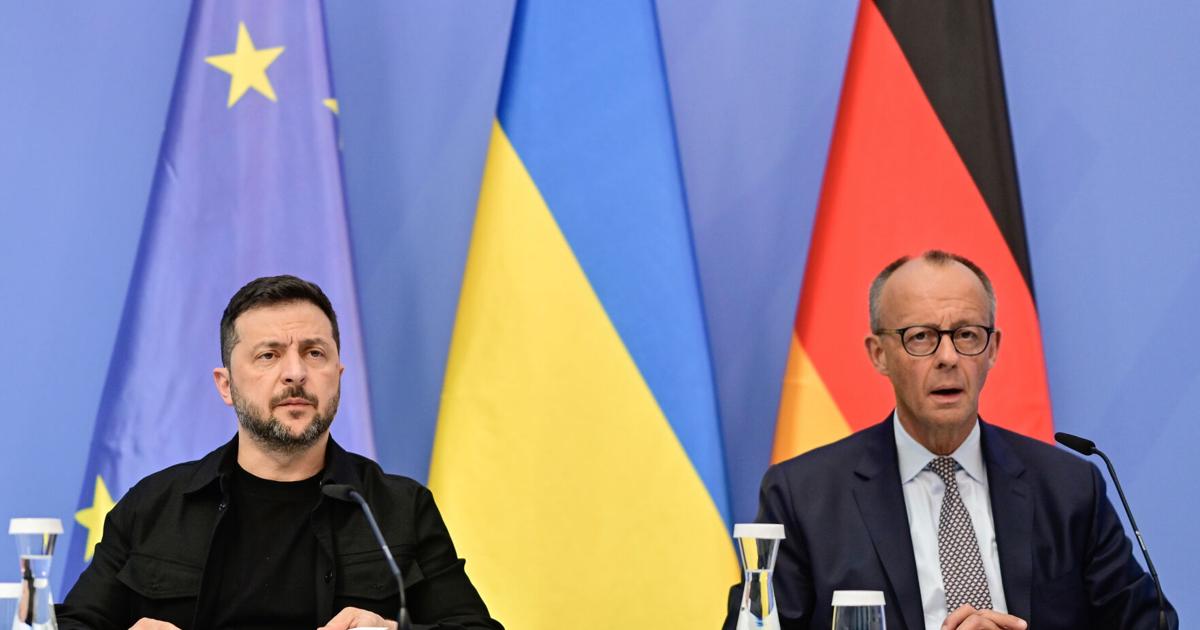
Berlin (AP) – President Donald Trump warned Wednesday that there will be “very severe consequences” if Russian President Vladimir Putin does not agree to stop the war against Ukraine after the two leaders meet for a summit later this week in Alaska.
Trump made the comment in response to a question from a reporter after announcing this year’s Kennedy Center Honors recipients in Washington. He did not say what the consequences might be.
The remark came soon after Trump consulted with European leaders, who said the president assured them he would make a priority of trying to achieve a ceasefire in Ukraine when he speaks with Putin on Friday in Anchorage.
Ukrainian President Volodymyr Zelenskyy, left, and German Chancellor Friedrich Merz attend a video meeting of European leaders with US President Donald Trump on the Ukraine war in Berlin, Germany, Wednesday, Aug. 13, 2025, ahead of the summit between the US and Russian leaders. (John MacDougall/Pool Photo via AP)
Ukrainian President Volodymyr Zelenskyy, left, and German Chancellor Friedrich Merz attend a video meeting of European leaders with US President Donald Trump on the Ukraine war in Berlin, Germany, Wednesday, Aug. 13, 2025, ahead of the summit between the US and Russian leaders. (John MacDougall/Pool Photo via AP)
Ukrainian President Volodymyr Zelenskyy joined several of Kyiv’s main allies in the virtual meeting with the U.S. leader, and Zelenskyy told the group that Putin “is bluffing” ahead of the planned summit about Russia’s ability to occupy all of Ukraine and shake off sanctions.
German Chancellor Friedrich Merz said afterward that “important decisions” could be made in Alaska, but he stressed that “fundamental European and Ukrainian security interests must be protected.”
Merz convened Wednesday’s meeting in an attempt to make sure European and Ukrainian leaders are heard ahead of the summit.
He stressed that a ceasefire must come at the beginning of negotiations. He told reporters that Trump “also wants to make this one of his priorities” in the meeting with Putin.
At a separate appearance in France, French President Emmanuel Macron said Trump “was very clear” that the U.S. wants to achieve a ceasefire at the summit.
Following Friday’s summit, Macron added, Trump will “seek a future trilateral meeting” — one involving Trump, Putin and Zelenskyy. He said he hoped that it could be held in Europe “in a neutral country that is acceptable to all parties.”
French President Emmanuel Macron speaks during a statement following a video conference on Ukraine at the Fort de Bregancon in Bormes-les-Mimosas, southern France, Wednesday Aug.13, 2025. (Philippe Magoni, Pool via AP)
French President Emmanuel Macron speaks during a statement following a video conference on Ukraine at the Fort de Bregancon in Bormes-les-Mimosas, southern France, Wednesday Aug.13, 2025. (Philippe Magoni, Pool via AP)
Merz, who described Wednesday’s conversation as “constructive and good,” said the Europeans made clear that “Ukraine must sit at the table as soon as there are follow-up meetings.”
European allies have pushed for Ukraine’s involvement in any peace talks, fearful that discussions that exclude Kyiv could otherwise favor Moscow.
The Ukrainian president, who traveled to Berlin to join the meeting alongside Merz, has repeatedly cast doubt on whether Putin would negotiate in good faith. He said Wednesday that he hoped an immediate ceasefire will be “the central topic” in Alaska, but also argued that Putin “definitely does not want peace.”
Zelenskyy said Putin “is trying to apply pressure … on all sectors of the Ukrainian front” in an attempt to show that Russia is “capable of occupying all of Ukraine.” Putin is also bluffing that sanctions “do not matter to him and are ineffective,” he added. “In reality, sanctions are very helpful and are hitting Russia’s war economy hard.”
Britain’s Prime Minister Keir Starmer co-chairs a videoconference call with European leaders on Ukraine, in London, Wednesday, Aug. 13, 2025. (Jack Taylor/Pool Photo via AP)
Britain’s Prime Minister Keir Starmer co-chairs a videoconference call with European leaders on Ukraine, in London, Wednesday, Aug. 13, 2025. (Jack Taylor/Pool Photo via AP)
The stakes for Europe
Trump has said he wants to see whether Putin is serious about ending the war, now in its fourth year, describing Friday’s summit as “a feel-out meeting” where he can assess the Russian leader’s intentions.
Yet Trump has disappointed allies in Europe by saying Ukraine will have to give up some Russian-held territory. He has also said Russia must accept land swapsalthough it was unclear what Putin might be expected to surrender.
Trump on Monday ducked repeated chances to say that he would push for Zelenskyy to take part in his discussions with Putin, and the president was dismissive of Zelenskyy and his need to be part of an effort to seek peace. Trump said that following Friday’s summit, a meeting between the Russian and Ukrainian leaders could be arranged, or that it could also be a meeting with “Putin and Zelenskyy and me.”
The Europeans and Ukraine are wary that Putin, who has waged the biggest land war in Europe since 1945 and used Russia’s energy might to try to intimidate the European Union, might secure favorable concessions and set the outlines of a peace deal without them.
The overarching fear of many European countries is that Putin will set his sights on one of them next if he wins in Ukraine.
Merz said that “if there is no movement on the Russian side in Alaska, then the United States and the Europeans should and must increase the pressure” on Moscow.
A soldier of Ukraine’s 30th Mechanized Brigade prepares to fire a howitzer towards Russian positions on the front line near near Kharkiv, Ukraine, Wednesday, Aug. 13, 2025. (AP Photo/Andrii Marienko)
A soldier of Ukraine’s 30th Mechanized Brigade prepares to fire a howitzer towards Russian positions on the front line near near Kharkiv, Ukraine, Wednesday, Aug. 13, 2025. (A P Photo/Andrii Marienko)
Land concessions a non-starter for Kyiv
Zelenskyy said Tuesday that Putin wants Ukraine to withdraw from the remaining 30% of the Donetsk region that it still controls as part of a ceasefire deala proposal the Ukrainian leader categorically rejected.
Zelenskyy reiterated that Ukraine would not give up any territory it controls, saying that would be unconstitutional and would serve only as a springboard for a future Russian invasion.
He said diplomatic discussions led by the U.S. focused on ending the war have not addressed key Ukrainian demands, including security guarantees to prevent future Russian aggression and ensuring that Europe is included in negotiations.
Three weeks after Trump returned to office, his administration took the leverage of Ukraine’s NATO membership off the table — something Putin has demanded — and signaled that the EU and Ukraine must handle security in Europe now while America focuses its attention elsewhere.
Senior EU officials believe Trump may be satisfied with simply securing a ceasefire in Ukraine and that he is probably more interested in broader U.S. interests and great power politics, aiming to ramp up business with Russia and rehabilitate Putin.
Russian advances in Donbas
Russian forces on the ground in Ukraine have been closing in on a key territorial grab around the city of Pokrovskin the eastern Donbas region that comprises Ukraine’s eastern industrial heartland, which Putin has long coveted.
Military analysts using open-source information to monitor the battles have said Ukraine’s ability to fend off those advances could be critical. Losing Pokrovsk would hand Russia an important victory ahead of the summit and could complicate Ukrainian supply lines to the Donetsk region, where the Kremlin has focused the bulk of military efforts.
___
Corbet reported from Paris. Associated Press writers Annie Ma in Washington, Lorne Cook in Brussels, Samya Kullab in Kyiv, Ukraine, and Stefanie Dazio in Berlin contributed to this report.
___
Follow AP’s coverage of the war in Ukraine at https://apnews.com/hub/russia-ukraine
The Dictatorship
California governor announces redistricting in response to Texas gerrymandering effort
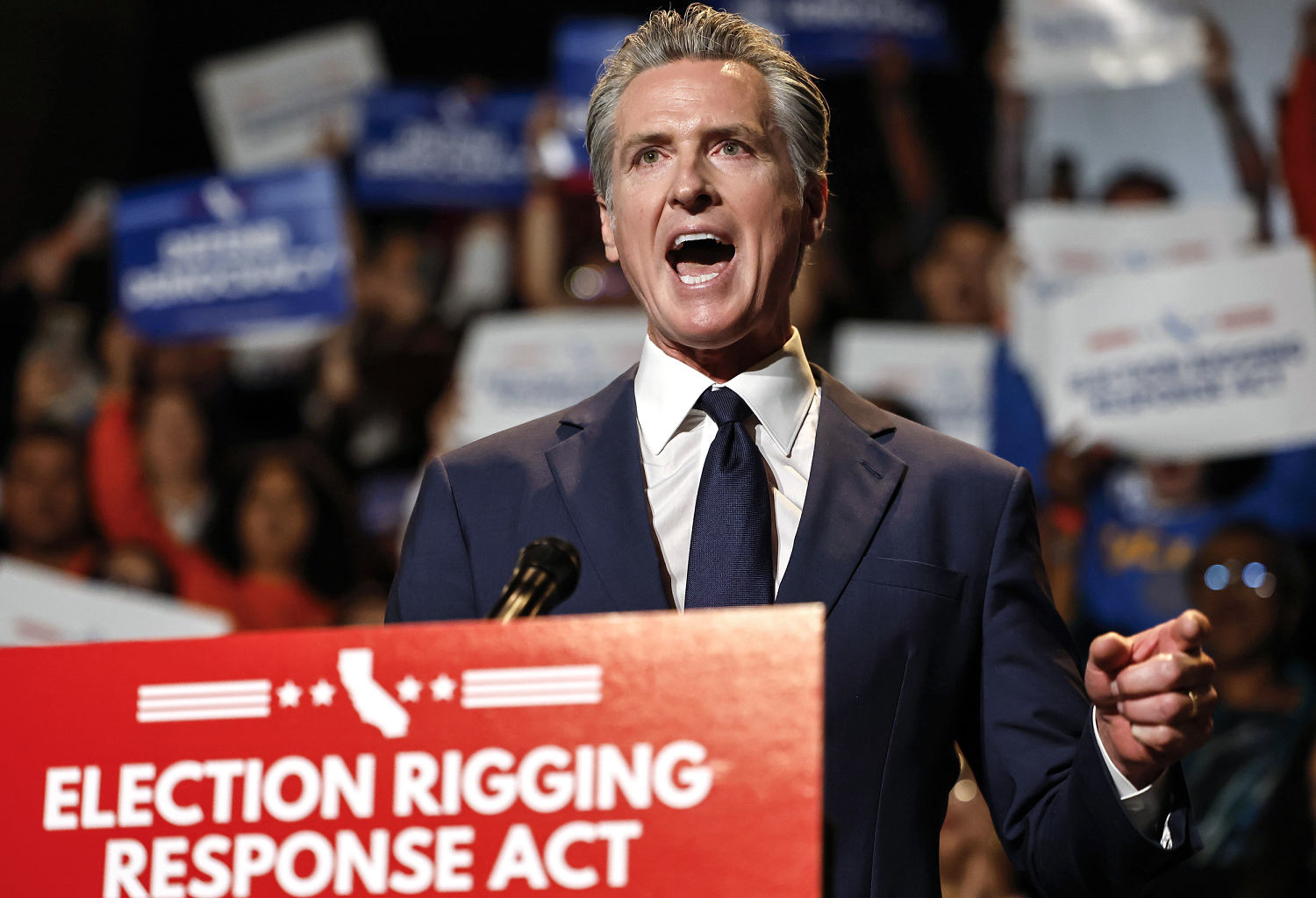

By Are Salam
California Gov. Gavin Newsom has officially called for a special election on redistricting in retaliation against Texas Republicans, who have moved to redraw their congressional districts and further gerrymander the electoral map at the direction of Donald Trump.
The special election, which Newsom has scheduled for Nov. 4, will be an ethical litmus test for California voters who must decide if they want to strip their independent redistricting commission of power temporarily in favor of a constitutional amendment to allow the state Legislature to create new maps for the 2026, 2028 and 2030 election cycles.
Newsom was met with loud applause as he began his address on what he deemed “Liberation Day.” Speaking directly to the camera, he said, “Wake up, America, this is a serious moment. Wake up to what’s going on.” Newsom spoke about the need to fight fire with fire and took direct aim at the president: “Donald Trump, you have poked the bear, and we will punch back.”
He added, “I know they say, ‘Don’t mess with Texas.’ But don’t mess with the great Golden State.”
I know they say, ‘Don’t mess with Texas.’ But don’t mess with the great Golden State.
california gov. gavin newsom
Republican lawmakers in Texas have been met with fierce criticism for acquiescing to the president’s demand to redraw the map to gain an additional five seats — a move that would disenfranchise Democratic voters in the state, particularly communities of color. The move is especially brazen given its timing: Redistricting typically happens only every decade, after the U.S. census has updated demographic information for each state.
When asked by the press why they were taking such drastic measures to unfairly tilt the balance of future elections, one Republican Texas House member, Mitch Littleput it simply: “Because we can.”
Speaking ahead of Newsom at the press conference were union representatives, local and national lawmakers from the state, and activists who underscored the risks of not taking action.
Jodi Hicks, president and CEO of Planned Parenthood Affiliates of California, urged action to protect reproductive freedoms, which Republican politicians have continued to erode since the U.S. Supreme Court overturned the constitutional right to an abortion in 2022.
“We don’t have another choice,” Hicks said.
Erika Jones, a representative of the California Teachers Association union, said, “Our union stands in full support of this ballot initiative. We are ready to do whatever it takes to stop this power grab and fight back against any and all attacks on our democracy, on our students and on public education.”
State Assemblymember Isaac Bryan spoke about the 55 Democratic legislators in Texas who fled their state “courageously, patriotically, to break quorum so that their state couldn’t lie, cheat and steal national elections from the American people.”
You come after our votes in California, and we will fight you tooth and nail.
sen. adam schiff, d-calif.
Bryan added, “Do Californians hate gerrymandering? Yes. Do the American people hate gerrymandering? Yes, we do and we absolutely should. That’s not what this is about. This is about whether we will let the authoritarian in the White House break our democracy while we sit silent, while we take a high road that doesn’t exist anymore. Now isn’t that moment. Now is the time to square up and defend all that we deserve, all that we’ve built, all that makes this country truly great.”
U.S. Sen. Adam Schiff, D-Calif., took to the podium and called it “a precarious moment in our nation’s history.” Schiff issued a stark warning to Trump and his Republican colleagues: “You come after our votes in California, and we will fight you tooth and nail.”
In recent days, Newsom has been trolling the president on social media and poking fun at his mannerisms, with his press office posting on X in all caps: “PRESS CONFERENCE COMING — HOSTED BY AMERICA’S FAVORITE GOVERNOR, GAVIN NEWSOM. FINAL WARNING NEXT. YOU WON’T LIKE IT!!! THANK YOU FOR YOUR ATTENTION TO THIS MATTER.”
Newsom also railed against federal officers who showed up outside the presser: “BORDER PATROL HAS SHOWED UP AT OUR BIG BEAUTIFUL PRESS CONFERENCE! WE WILL NOT BE INTIMIDATED!…TRUMP’S PRIVATE ARMY IS ILLEGALLY ON PRIVATE PROPERTY!!!! WE WILL NOT BE INTIMIDATED BY THIS WEAK LITTLE MAN!!!”

Erum Salam is a breaking news reporter and producer for BLN Digital. She previously was a breaking news reporter for The Guardian.
The Dictatorship
Trump’s citizenship chief espouses ‘great replacement’ theory racism to Breitbart
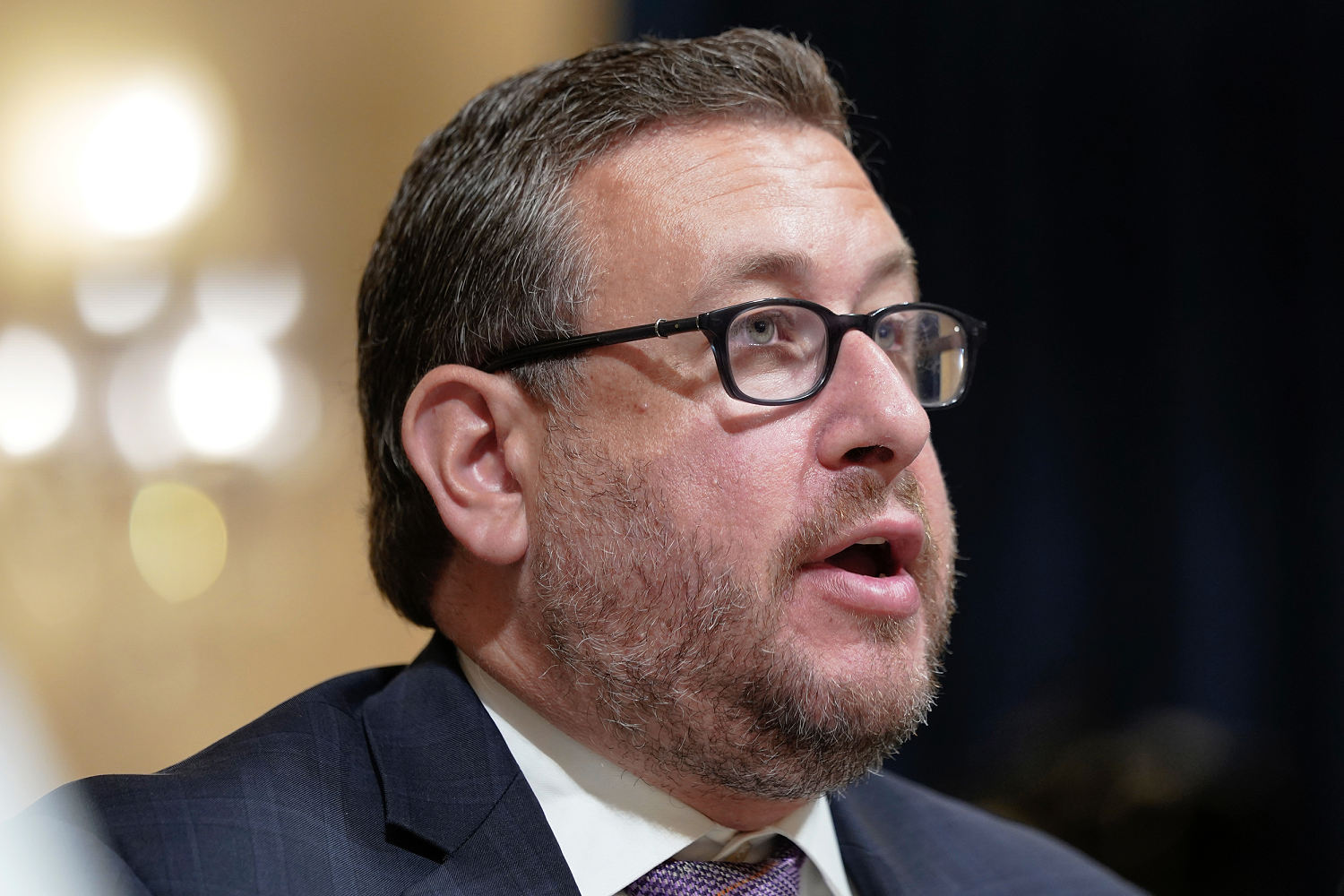
Donald Trump’s director of U.S. Citizenship and Immigration Services promoted white supremacist propaganda during an interview with the far-right outlet Breitbart, alleging that the Trump administration’s anti-immigrant agenda comes in response to liberals’ attempts to nefariously alter the demographic makeup of the country for political gain.
USCIS Director Joseph Edlow’s comments to Breitbart, an outlet with a history of promoting racist propagandaadvanced the central tenet of the so-called great replacement theoryin which white supremacists allege that liberals — in many cases, Jewish liberals — are attempting to bring nonwhite immigrants into majority-white countries en masse, to try to change a nation’s demographic makeup and help liberals win elections.
This is a baseless and racist conspiracy theory that has been espoused by mass murderers and also echoed by the president of the United States. But the man tasked with overseeing America’s citizenship protocol and various programs for immigrants seems to think it may have some validity.
Per Breitbart, he said:
Anything the Biden administration could do to get a bigger foothold from an illegal population in this country, they were going to do. I mean, their long-term plan, I think we have to assume, was to grant some sort of mass amnesty, make them all citizens, and then spread them out to try to change demographics elsewhere throughout the country.
Again, this is nothing more than bigoted, conspiratorial schlock. But the upper echelons of Trump’s administration are filled with figures known to have peddled white supremacist talking points, from White House policy director Stephen Miller to State Department official Darren Beattie and a host of others. And it certainly seems we can add Joseph Edlow to that group.
-
Uncategorized9 months ago
Bob Good to step down as Freedom Caucus chair this week
-

 The Josh Fourrier Show9 months ago
The Josh Fourrier Show9 months agoDOOMSDAY: Trump won, now what?
-

 Politics9 months ago
Politics9 months agoWhat 7 political experts will be watching at Tuesday’s debate
-

 Politics9 months ago
Politics9 months agoHow Republicans could foil Harris’ Supreme Court plans if she’s elected
-
Economy9 months ago
Fed moves to protect weakening job market with bold rate cut
-

 Politics9 months ago
Politics9 months agoRFK Jr.’s bid to take himself off swing state ballots may scramble mail-in voting
-

 The Dictatorship6 months ago
The Dictatorship6 months agoPete Hegseth’s tenure at the Pentagon goes from bad to worse
-

 Politics6 months ago
Politics6 months agoFormer ‘Squad’ members launching ‘Bowman and Bush’ YouTube show





